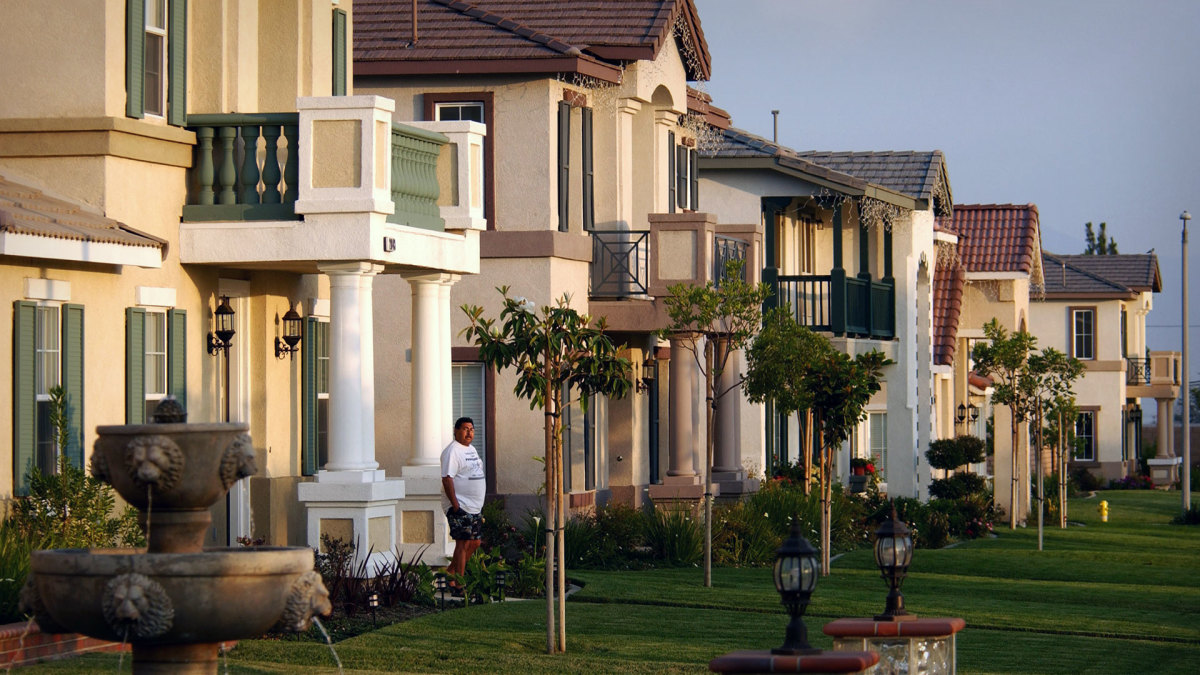
Home prices have taken off this year, as demand has outstripped faltering supply.
The surge occurred even as 30-year-fixed-mortgage rates have surpassed 7%, deterring some buyers.
The S&P CoreLogic Case-Shiller home-price index has ascended for six straight months, hitting a record in July (The index is calculated with a one-month lag.) The index climbed 0.6% in July from June and was up 1% from a year earlier.
Related: Goldman Sachs fund manager makes the case for these 3 dividend stocks
Home prices peaked in June 2022 and fell through January 2023, declining 5% in those seven months. The increase in prices that began in February has now erased that decline.
"That said, regional differences continue to be striking,” said Craig Lazzara, managing director at S&P DJI.
‘Revenge of the Rust Belt’ in housing market
“On a year-over-year basis, the revenge of the Rust Belt continues,” he said. The three best-performing metropolitan areas in July were Chicago (up 4.4%), Cleveland (up 4%), and New York (up 3.8%). At the bottom it was Las Vegas (down 7.2%) and Phoenix (down 6.6%).”
The price climb likely isn’t over yet, Lazzara said. “Although the market’s gains could be truncated by increases in mortgage rates or by general economic weakness, the breadth and strength of this month’s report are consistent with an optimistic view of future results.”
The National Association of Realtors’ report on existing home prices for August confirmed that forecast.
The median existing-home sales price registered $407,100 in August, up 0.1% from $406,700 in July and up 3.9% from $391,700 a year ago. August represented the third consecutive month that prices surpassed $400,000.
Demand is strong for the few homes available from those who are able to pay cash or to afford lofty mortgage rates.
A Supply-Demand Issue: Few homes for sale
"Home prices continue to march higher, despite lower home sales," said NAR Chief Economist Lawrence Yun. "Supply needs to essentially double to moderate home price gains."
The number of homes actively for sale decreased by 7.9% in August compared with a year earlier, according to Realtor.com.
Inventories are likely to remain low. Building new homes is expensive, and since interest rates have shot up, homeowners have little incentive to sell since they'd have to find new homes with much more expensive mortgages.
“Builder sentiment declined for the first time in several months, and construction levels have dipped to a three-year low, which could have an impact on the already low housing supply,” Freddie Mac Chief Economist Sam Khater said last week.
So if you’re looking to buy a home, it may make sense to wait until prices come down. Rent’s not cheap either in many cities, but if you ultimately buy a home, that rent is a temporary measure.
Receive full access to real-time market analysis along with stock, commodities, and options trading recommendations. Sign up for Real Money Pro now.







